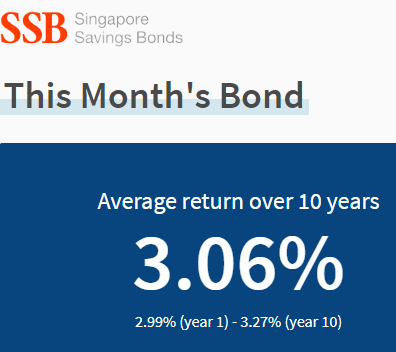 [/caption]
Risk management in financial planning is the systematic approach to the discovery and treatment of risk.
The objective is to minimize worry by dealing with the possible losses before they happen.
The process involves:
Step 1: Identification
Step 2: Measurement
Step 3: Method
Step 4: Administration
Risk Identification
The process begins by identifying all potential losses that can cause serious financial problems.
(1) Property Losses - The direct loss that requires replacement or repair and indirect loss that requires additional expenses as a result of the loss.
(For example, the damage of the car incurs repair cost and additional expenses to rent another car while the car is being repaired.)
(2) Liability Losses - It arises from the damage of other' property or personal injury to others.
(For example, the damage to public property as a result of a car accident.)
(3) Personal Losses - The loss of earning power due to death, disability, sickness or unemployment and the extra expenses incurred as a result of injury or illness.
(For example, the loss of employment due to cancer and the required treatment cost in addition to normal living expenses.) Read more...
[/caption]
Risk management in financial planning is the systematic approach to the discovery and treatment of risk.
The objective is to minimize worry by dealing with the possible losses before they happen.
The process involves:
Step 1: Identification
Step 2: Measurement
Step 3: Method
Step 4: Administration
Risk Identification
The process begins by identifying all potential losses that can cause serious financial problems.
(1) Property Losses - The direct loss that requires replacement or repair and indirect loss that requires additional expenses as a result of the loss.
(For example, the damage of the car incurs repair cost and additional expenses to rent another car while the car is being repaired.)
(2) Liability Losses - It arises from the damage of other' property or personal injury to others.
(For example, the damage to public property as a result of a car accident.)
(3) Personal Losses - The loss of earning power due to death, disability, sickness or unemployment and the extra expenses incurred as a result of injury or illness.
(For example, the loss of employment due to cancer and the required treatment cost in addition to normal living expenses.) Read more...[caption id="attachment_2758" align="alignright" width="150" caption="Photo by eva101"] [/caption]
Risk management in financial planning is the systematic approach to the discovery and treatment of risk.
The objective is to minimize worry by dealing with the possible losses before they happen.
The process involves:
Step 1: Identification
Step 2: Measurement
Step 3: Method
Step 4: Administration
Risk Identification
The process begins by identifying all potential losses that can cause serious financial problems.
(1) Property Losses - The direct loss that requires replacement or repair and indirect loss that requires additional expenses as a result of the loss.
(For example, the damage of the car incurs repair cost and additional expenses to rent another car while the car is being repaired.)
(2) Liability Losses - It arises from the damage of other' property or personal injury to others.
(For example, the damage to public property as a result of a car accident.)
(3) Personal Losses - The loss of earning power due to death, disability, sickness or unemployment and the extra expenses incurred as a result of injury or illness.
(For example, the loss of employment due to cancer and the required treatment cost in addition to normal living expenses.) Read more...
[/caption]
Risk management in financial planning is the systematic approach to the discovery and treatment of risk.
The objective is to minimize worry by dealing with the possible losses before they happen.
The process involves:
Step 1: Identification
Step 2: Measurement
Step 3: Method
Step 4: Administration
Risk Identification
The process begins by identifying all potential losses that can cause serious financial problems.
(1) Property Losses - The direct loss that requires replacement or repair and indirect loss that requires additional expenses as a result of the loss.
(For example, the damage of the car incurs repair cost and additional expenses to rent another car while the car is being repaired.)
(2) Liability Losses - It arises from the damage of other' property or personal injury to others.
(For example, the damage to public property as a result of a car accident.)
(3) Personal Losses - The loss of earning power due to death, disability, sickness or unemployment and the extra expenses incurred as a result of injury or illness.
(For example, the loss of employment due to cancer and the required treatment cost in addition to normal living expenses.) Read more...
 [/caption]
Risk management in financial planning is the systematic approach to the discovery and treatment of risk.
The objective is to minimize worry by dealing with the possible losses before they happen.
The process involves:
Step 1: Identification
Step 2: Measurement
Step 3: Method
Step 4: Administration
Risk Identification
The process begins by identifying all potential losses that can cause serious financial problems.
(1) Property Losses - The direct loss that requires replacement or repair and indirect loss that requires additional expenses as a result of the loss.
(For example, the damage of the car incurs repair cost and additional expenses to rent another car while the car is being repaired.)
(2) Liability Losses - It arises from the damage of other' property or personal injury to others.
(For example, the damage to public property as a result of a car accident.)
(3) Personal Losses - The loss of earning power due to death, disability, sickness or unemployment and the extra expenses incurred as a result of injury or illness.
(For example, the loss of employment due to cancer and the required treatment cost in addition to normal living expenses.) Read more...
[/caption]
Risk management in financial planning is the systematic approach to the discovery and treatment of risk.
The objective is to minimize worry by dealing with the possible losses before they happen.
The process involves:
Step 1: Identification
Step 2: Measurement
Step 3: Method
Step 4: Administration
Risk Identification
The process begins by identifying all potential losses that can cause serious financial problems.
(1) Property Losses - The direct loss that requires replacement or repair and indirect loss that requires additional expenses as a result of the loss.
(For example, the damage of the car incurs repair cost and additional expenses to rent another car while the car is being repaired.)
(2) Liability Losses - It arises from the damage of other' property or personal injury to others.
(For example, the damage to public property as a result of a car accident.)
(3) Personal Losses - The loss of earning power due to death, disability, sickness or unemployment and the extra expenses incurred as a result of injury or illness.
(For example, the loss of employment due to cancer and the required treatment cost in addition to normal living expenses.) Read more...




